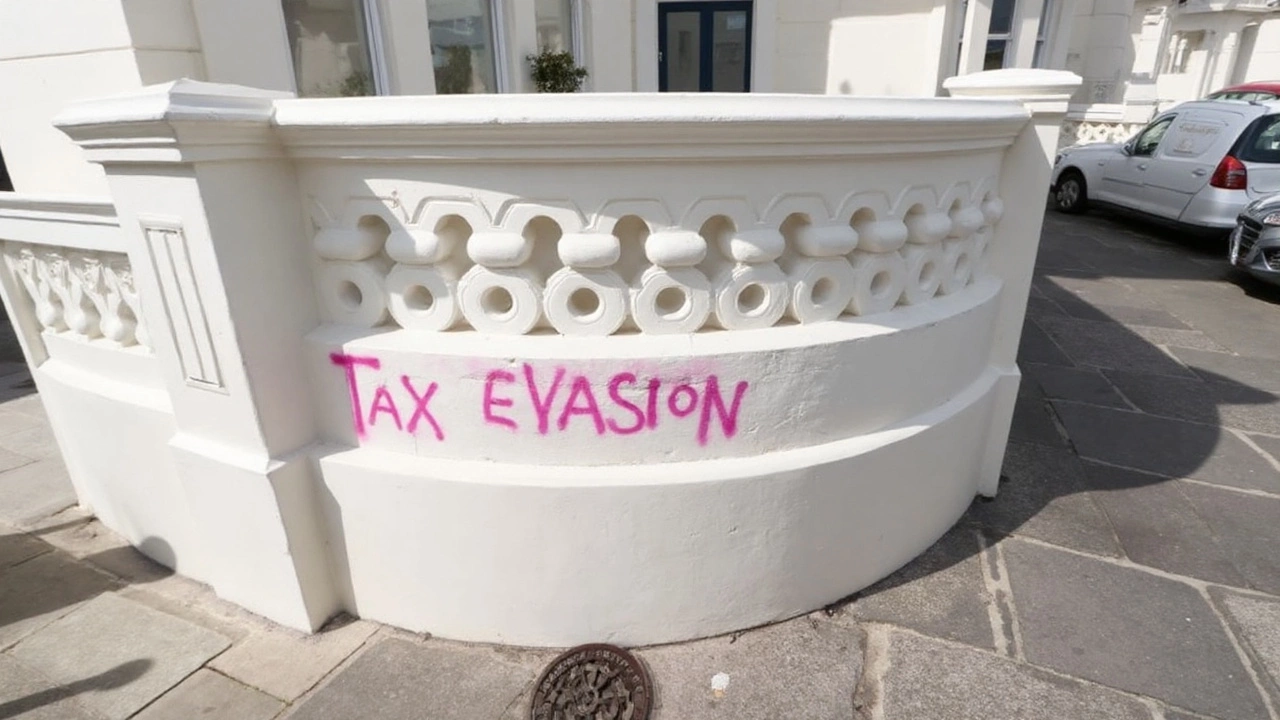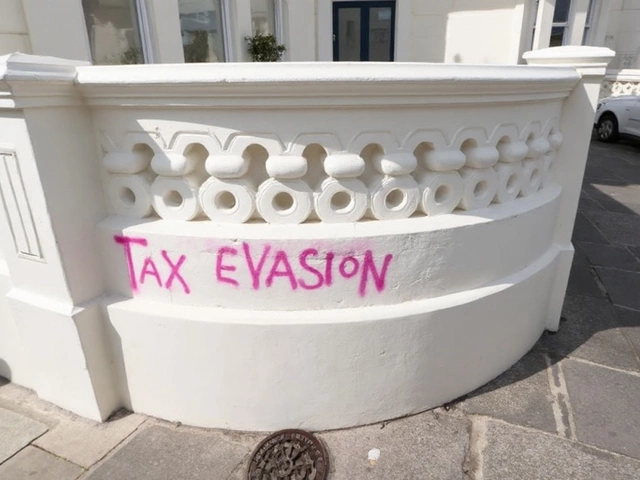Graffiti scrubbed after row over speed of clean-up
A neighbour paid to remove offensive graffiti from outside Angela Rayner’s £800,000 Hove flat, ending a local row over why the tags were set to be cleared so quickly. The spray-painted messages — including “tax evader” alongside profanity — appeared on a white wall outside the seaside property on Thursday, with more slogans daubed on construction chipboard across the road.
The timing wasn’t random. The vandalism came after Rayner acknowledged she had not paid the correct amount of stamp duty on the purchase of the flat. Local reports put the underpayment at about £40,000, though the precise figure has not been confirmed by officials.
City workers were initially due to remove the graffiti on Thursday afternoon. That plan changed fast. After complaints from residents about the speed of the response compared with how the council handles similar vandalism elsewhere, Brighton and Hove City Council paused the work. The pushback centred on fairness: why here, and why so fast?
By Friday, the council confirmed the clean-up had happened, framing it as a security decision and a routine response to offensive material. The bill, the council said, was settled by a local resident. That detail matters in Brighton and Hove, where removal from private surfaces often falls to owners or those willing to fund it, unless the content is abusive or there’s a safety risk.
Sussex Police are treating the case as criminal damage and have been in contact with Rayner to discuss any further security concerns. Officers have not announced arrests and have not released details about suspects. Meanwhile, Rayner’s spokesperson condemned the graffiti as totally unjustifiable and left the matter with the police.
The political backdrop is hard to miss. On Friday, Rayner resigned from her roles as deputy prime minister, housing secretary, and deputy Labour leader. The stamp duty row, the public scrutiny, and now the vandalism outside her home converged into a tense 48 hours in Hove.
- Thursday morning: Graffiti appears outside the flat and on chipboard nearby.
- Thursday afternoon: Council crews are scheduled to remove it, then stand down after residents complain about the pace.
- Friday: Council confirms removal on security and offensive-content grounds, paid for by a resident.
- Police: Treating the vandalism as criminal damage and liaising with Rayner on security.

Why this touched a nerve — and the stamp duty context
Brighton and Hove is no stranger to graffiti. The city tries to distinguish between public art and vandalism, and it prioritises removing anything that’s offensive or abusive. Even with that policy, residents often wait days or weeks for tags to be cleared from shopfronts or boundary walls. That’s why Thursday’s rapid scheduling irked some locals. They saw a different set of rules for a high-profile figure, even if the council insists the trigger was offensive language and safety, not status.
There’s also the property rights angle. Councils usually need permission to clean private walls and may charge for the work unless the content is deemed offensive. In this case, the council says a resident covered the cost. That fits a common pattern: where the messaging crosses a line, the public sector may act faster; otherwise, it’s often left to owners, managing agents, or neighbours to pay for removal.
The content of the tags made this case sensitive. Calling someone a “tax evader” is not just an insult; it implies a crime. Rayner has said she underpaid stamp duty — a civil tax issue — not that she committed tax evasion, which is deliberate and criminal. That distinction is why police treat the wall art as criminal damage, not political expression. Free speech does not cover defacing private property with accusations and expletives.
The stamp duty piece is dry but crucial. Stamp Duty Land Tax applies when you buy property in England and Northern Ireland. It’s due shortly after completion, with higher rates for second homes or buy-to-lets. Underpaying can happen if a buyer misapplies reliefs or the wrong rate, especially around main-home status, surcharges for additional properties, or complex exemptions. If HMRC later finds an underpayment, it typically seeks the shortfall plus interest and, in some cases, penalties. Reports around this case suggest the underpayment was significant — around £40,000 — which naturally fuels scrutiny.
Politically, it adds up to a storm. Voters tend to be unforgiving about housing and taxes, and Hove is a city that watches both closely. The flat’s £800,000 price tag, the stamp duty admission, and the high-profile resignation all feed a narrative of accountability and standards in public life. The graffiti is the ugliest expression of that pressure, but the anger it taps into is real.
For the council, the episode is a test of consistency. Officials say they remove offensive graffiti quickly across the city and make exceptions for safety. Residents will judge that claim by what they see next time a shop shutter or a bus stop gets hit. For now, the city points to a clear process: offensive or abusive content moves to the front of the queue; otherwise, removal is scheduled in turn or arranged privately.
For police, the next steps are routine but important. Criminal damage cases rely on timing, witness statements, and any security footage available from nearby buildings. Officers have made contact with the occupant for security reasons, which is standard when a public figure’s home is targeted. Whether charges follow depends on identifying who did it and proving the act.
And for Rayner, the fallout is both public and personal. The vandalism brought a noisy, visible symbol of a tax row right to her front door at the very moment her political future shifted. Her team insists the tags are a policing matter, not politics. Her critics say the episode reflects public frustration over rules and fairness. Both things can be true at once.
What happens next? The wall is clean. The police file is open. The council has tried to draw a line by explaining why this removal moved fast and who paid. The unresolved piece is trust: whether residents believe the system works the same way for everyone, whether the tax issue is addressed transparently, and whether public debate can stay on the right side of the law — off the walls, on the record.




